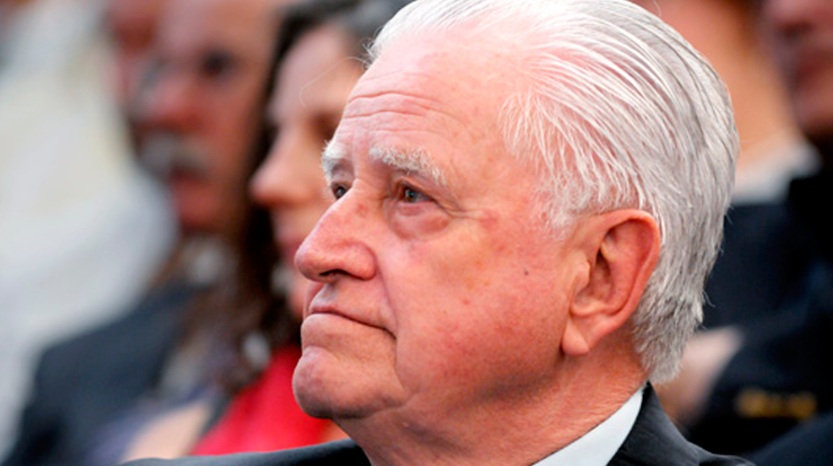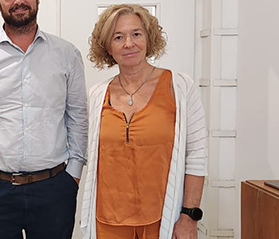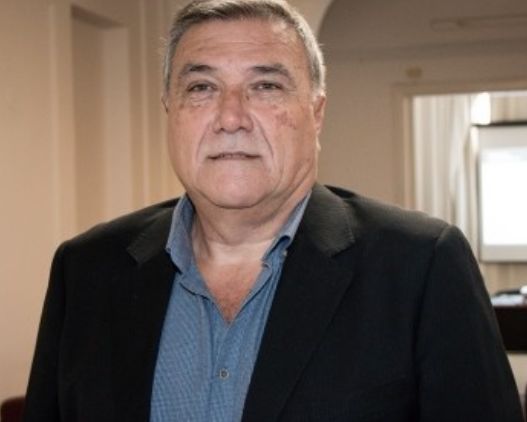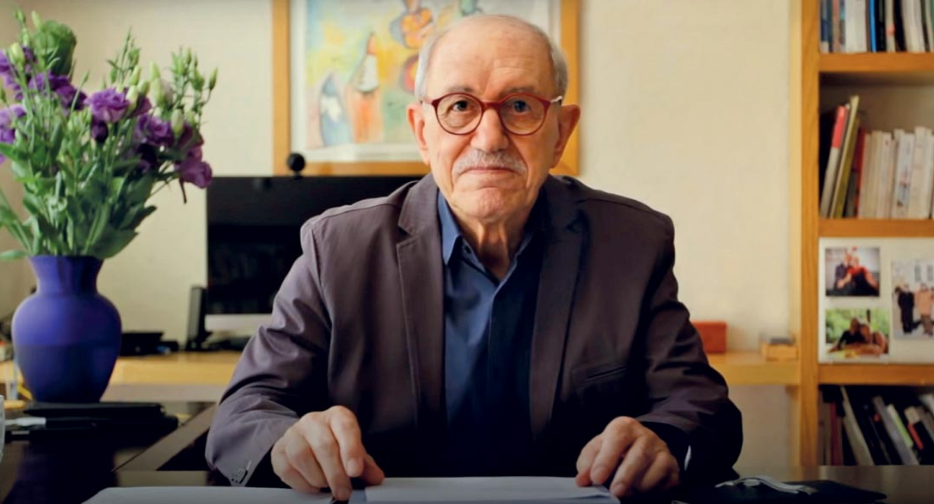Eduardo Hernán Charreau nació el 27 de mayo de 1940 en San Fernando, provincia de Buenos Aires, y falleció el 23 de marzo de 2019 en la misma ciudad. Fue un químico especializado en endocrinología.
Charreau es especialmente recordado por sus aportes dentro del campo de las ciencias químicas, específicamente en la endocrinología molecular.
A lo largo de su carrera, estuvo en permanente contacto con otros científicos argentinos importantes para la época, y llegó a ser presidente del Consejo Nacional de Investigaciones Científicas y Técnicas (CONICET).
Charreau y las Ciencias Químicas
Charreau realizó su formación en la Facultad de Ciencias Exactas y Naturales de la Universidad de Buenos Aires (UBA). Primeramente, en 1962, obtuvo su título de licenciatura en Ciencias Químicas, mientras que en 1965 completó el doctorado en las mismas ciencias.
Posterior a su formación académica en Argentina, realizó un postdoctorado en la Facultad de Medicina de la Universidad de Harvard, Estados Unidos, específicamente en el Departamento de Química Biológica.
Dicha ciencia se define por estudiar a los organismos vivos y su respectiva estructura, hacer uso de técnicas químicas, y enfocarse en sistemas biológicos.
A lo largo de su carrera, Charreau se mantiene en estrecho contacto con Luis Federico Leloir y Bernardo Houssay, dos científicos argentinos altamente reconocidos por sus aportes dentro del campo científico.
Charreau: su lugar en Argentina
Además de completar su postdoctorado en la Universidad de Harvard, Charreau también se desempeñó como Profesor Adjunto dentro de la misma. Asimismo, formó parte de un laboratorio dirigido por Bernardo Houssay, donde compartió espacio con otros científicos argentinos que en su momento se encontraban en el exterior.
Las investigaciones de dicho laboratorio estuvieron enfocadas en las hormonas esteroides. La importancia de estas hormonas recae en el rol que cumplen dentro del crecimiento y el metabolismo. Su nombre se debe a los compuestos químicos denominados esteroides.
Una vez de vuelta en Argentina, Charreau continúa tanto su labor como investigador científico y docente.
En cuanto a su rol como docente, se desempeñó como tal en la institución académica de la cual se había egresado. Por otra parte, en cuanto a sus investigaciones científicas, el químico argentino formó parte del Instituto de Biología y Medicina Experimental (IBYME), el cual había sido fundado por Houssay.
Charreau llegó a ser director del mismo y fue miembro del grupo a cargo de las investigaciones centradas en endocrinología molecular.
La endocrinología molecular es entendida como la disciplina médica a cargo del estudio de las funciones de unas hormonas específicas.
Dichas hormonas son secretadas por glándulas que son secretadas por glándulas a nivel molecular. Además de la endocrinología molecular, otras de las áreas de interés que Charreau ha abordado a lo largo de su vida a través de sus investigaciones ha sido la hormono-dependencia tumoral.
La misma es descrita como la dependencia que ciertos tumores desarrollan con ciertas hormonas para su respectivo crecimiento.
Una carrera distinguida
Además de sus investigaciones en el IBYME, Charreau alcanzó diferentes puestos a lo largo de su trayectoria científica.
Por un lado, logró ser presidente del Consejo Nacional de Investigaciones Científicas y Técnicas (CONICET), la organización más importante de Argentina en cuanto a las investigaciones científicas y tecnológicas.
Asimismo, fue nombrado como Investigador Superior Emérito en el mismo.
Por otra parte, el químico argentino fue presidente de la Asociación Argentina para el Progreso de las Ciencias (AAPC).
Dicha Asociación es una organización argentina dedicada al desarrollo de la ciencia dentro del territorio nacional y la valorización de las investigaciones científicas y tecnológicas.
Además, también obtuvo la presidencia de la Academia Nacional de Ciencias Exactas, Físicas y Naturales.
Charreau formó parte de diferentes organizaciones, entre las cuales se destaca su membresía de la Academia de Ciencias del Tercer Mundo (TWAS).
La TWAS es una organización dedicada a promover las investigaciones científicas y la labor de profesionales científicos de diversos países pertenecientes a países en desarrollo.
A su vez, Charreau fue galardonado con diferentes premiaciones a lo largo de su vida.
Entre las mismas, se distinguen el haber recibido el Premio Konex en más de una ocasión, el cual es otorgado por la Fundación Konex y destaca la labor dentro del territorio nacional.
Internacionalmente, también recibió la Orden de Caballero de las Palmas Académicas del Gobierno Francés, una de las condecoraciones más destacadas dentro del país francés en los campos de la cultura y la educación.
A lo largo de su carrera, Charreau también fue consultor de diferentes organizaciones internacionales, entre las cuales se destaca la Organización Mundial de la Salud (OMS), organismo dedicado a cuestiones ligadas a la salud a lo largo del globo.
Charrea es recordado por su compromiso con las investigaciones enfocadas en la endocrinología molecular y por haber formado parte de diferentes instituciones académicas y científicas, tanto nacionales como internacionales.




